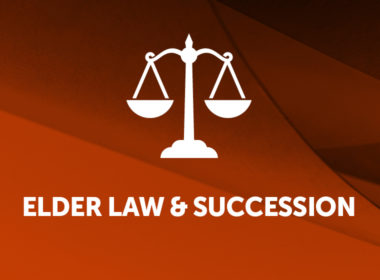Key decisions
- Jordan v Goldspring (No 2) [2022] NSWSC 780
- Estate Gooley, Deceased [2022] NSWSC 734
- Chisak v Presot [2022] NSWCA 100
- Re Maddock; Bailey v Maddock [2022] VSC 346
- Weller v NSW Legal Services Commissioner [2022] NSWCATOD 67
- Application by Maggie Riman (Estate of Rita Riman) [2022] NSWSC 872
- Hibbitt v Ziade [2022] NSWSC 904
Executors guilty of contempt
Three of Frederick Goldspring’s children were appointed his executors. In Jordan v Goldspring (No 2) [2022] NSWSC 780 (Henry J), three of his seven children sought orders that the executors be found guilty of and punished for contempt for failing to comply with orders made by Lindsay J and Hallen J requiring an accounting to beneficiaries. In resisting the basis for contempt, the executors submitted that if the applicants wished to challenge the contents and verification of the accounts served by the executors there were other mechanisms available to them. Similarly, if they wished to pursue a case that the executors were in breach of their duties or there were no proper accounts, there were other mechanisms available such as seeking directions for the cross-examination of the executors after giving appropriate and meaningful notice of the points on which they were to be cross-examined.
The Court was not satisfied that those options excused the executors’ actions. It was also not satisfied that contempt had been established with the orders of Lindsay J and some orders of Hallen J. However, it found the executors had committed civil contempt of court by failing to comply with Hallen J’s orders to include a full account in relation to a specified asset or to produce documents in relation to a particular book entry. The Court sought submissions on punishment.
Provision for drug addicted grandson
In Estate Gooley, Deceased [2022] NSWSC 734 (Lindsay J), the claimant was the drug addicted adult grandson of the deceased who lived in difficult circumstances. The claimant lived in a drug culture, was barely employable, dependent upon a disability pension, living in public housing and was without substantial prospects. His only substantive asset was a small car. He applied for family provision 22 months after the deceased’s death. The Court extended the time to bring the application given the uncertainty in administration of the deceased’s estate, the size of the estate, the fact that there has been no distribution of the estate and the merits of the application (at [73]).
The Court found the relationship between grandson and deceased was ‘something more than merely an ordinary relationship between a grandparent and a grandchild. The plaintiff looked to the deceased as a surrogate father’ (at [95]. That relationship, the grandson’s poverty, his need for assistance in escaping the drug culture, and the deceased’s recognition of the grandson as in need of special assistance were factors warranting the application (at [102], [118]).


